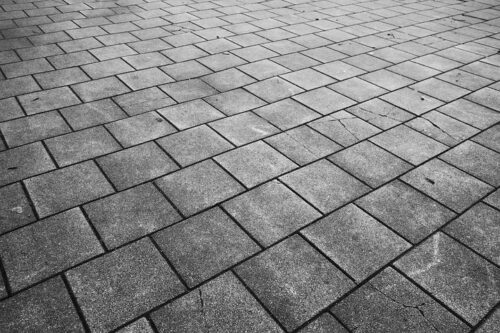Is porcelain paving slippery?
When you consider the smooth and elegant finish of porcelain pavers – the elements that make them so attractive to homeowners - it is natural to wonder: ‘Is porcelain paving slippery?’ Porcelain is a man-made substance, created through pressing and then an intense heating process that produces a material perfect for a wide range of landscaping projects.
When you consider the smooth and elegant finish of porcelain pavers – the elements that make them so attractive to homeowners - it is natural to wonder: ‘Is porcelain paving slippery?’
Porcelain is a man-made substance, created through pressing and then an intense heating process that produces a material perfect for a wide range of landscaping projects.
The fact it is scratch-resistant, non-porous, and potentially slip-resistant, means it is highly sought after for use as paving for patios and other outdoor spaces.
Let’s face it; the unpredictability of the British weather means that nobody wants paving that becomes slippery when wet.
Porcelain pavers are versatile, and available in many different types of finish and textures. They are less porous than other kinds of stone slabs and won’t absorb moisture, which means that water stays on the surface and quickly evaporates – resulting in a more slip-proof surface.
If you are considering whether to opt for porcelain pavers as a surround for your swimming pool, for example, you can ensure they are safe to walk on even during wet weather by choosing a more textured type of slab.
A smoother, glossier kind of paver will do the job just as well, but a textured surface is less slippery.
What are anti-slip tile ratings?
If you are asking ‘Is porcelain paving slippery?’ and are unsure what kind of slabs to choose from, you can check out its slip rating.
There are two recognised tests that assess how slippery a surface is.
One is the pendulum test, which is recommended by the Health and Safety Executive and is used in legal cases where proof is needed that every anti-slip precaution has been taken.
The test assesses the friction offered by a floor surface when a foot comes into contact with it. It can measure slip potential of dry and wet flooring, and does so by swinging an imitation heel over an area in a controlled manner.
There are three slip-potential categories: low, moderate, and high. Afterwards, a PTV (Pendulum Test Value) is given, which is an assessment of an approximate accident risk.
Another way of testing slip resistance is R ratings. The ‘R’ is short for ‘ramp’ and refers to the sloping ground or floor surface. It is a way to grade the slip-resistance of paving.
The rating is assessed by positioning a porcelain slab at an angle of anything between 19 and 26 degrees before pouring oil onto the surface. The material goes through a series of tests.
The scale runs from R9 to R13, and for outdoor porcelain paving R11 is the optimum rating required.
If the paving you choose has an R11 rating, it is slip-resistant. Anything less on that scale can be considered to be potentially slippery, and therefore not appropriate for an outdoor paving project.
Is porcelain paving slippery when icy?
During the winter, when patios and paving are icy, it is inevitable that surfaces get slippery.
However, unlike other types of paving, porcelain can cope with being de-iced or salted without incurring any damage.
In fact, porcelain paving can cope with almost any kind of weather condition and remain looking good. Not only that, it won’t have to be refinished on a regular basis because its composition makes it inherently weather-resistant and, yes, slip-proof too.
At Forward Builders’ Supplies, you can check out a wide range of stunning porcelain pavers that are perfect for your landscaping project.
Browse our range here.










The information below is required for social login
Login
Register
Fill in the form below to create your new account